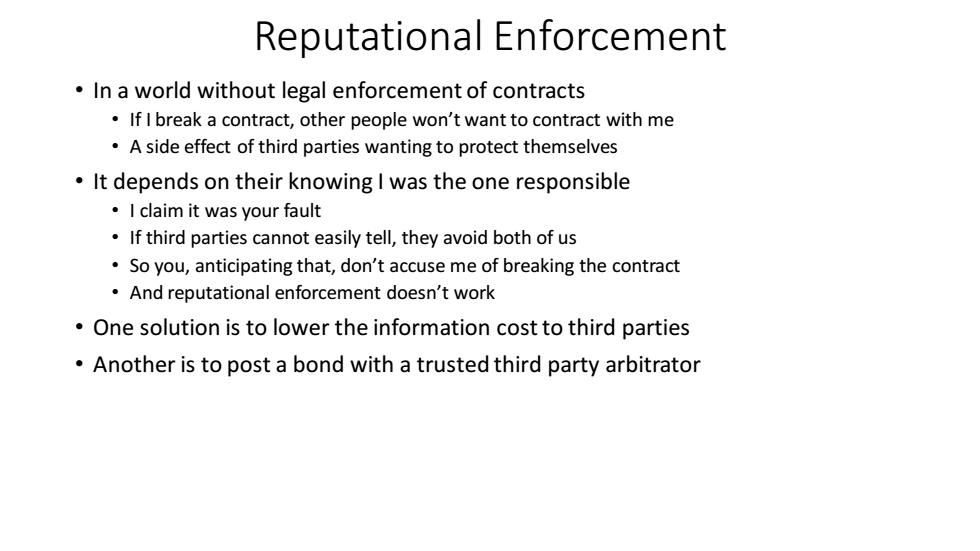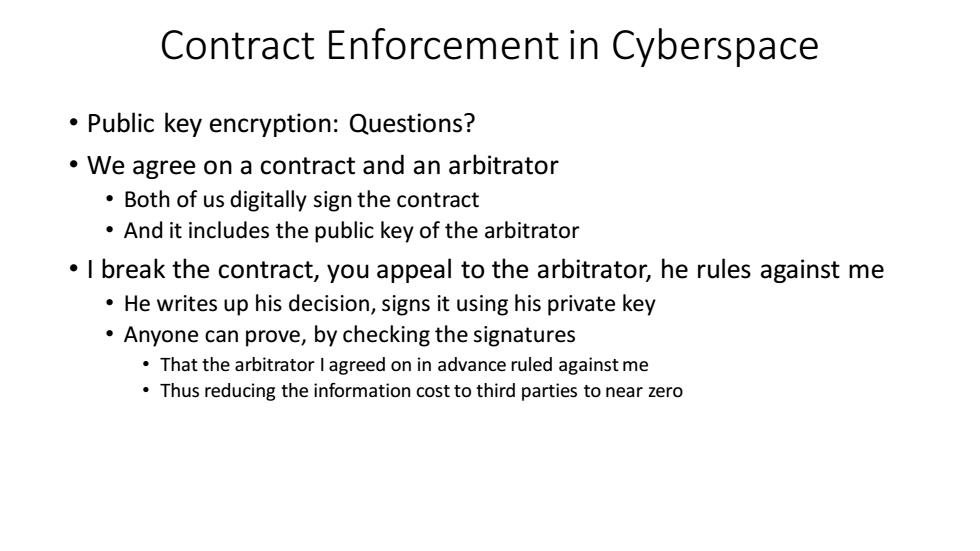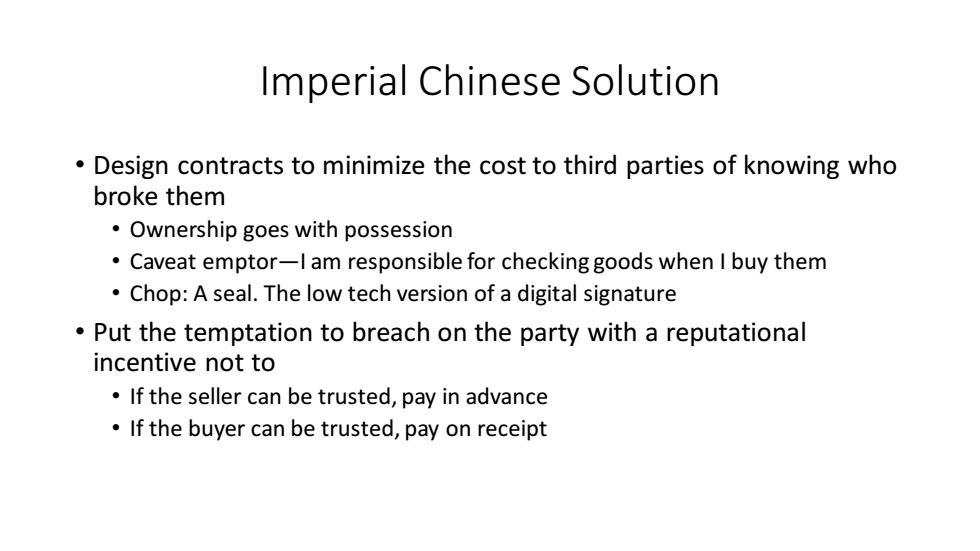
Contract
Contract

Reputational Enforcement In a world without legal enforcement of contracts If I break a contract,other people won't want to contract with me A side effect of third parties wanting to protect themselves It depends on their knowing I was the one responsible I claim it was your fault If third parties cannot easily tell,they avoid both of us So you,anticipating that,don't accuse me of breaking the contract And reputational enforcement doesn't work One solution is to lower the information cost to third parties Another is to post a bond with a trusted third party arbitrator
Reputational Enforcement • In a world without legal enforcement of contracts • If I break a contract, other people won’t want to contract with me • A side effect of third parties wanting to protect themselves • It depends on their knowing I was the one responsible • I claim it was your fault • If third parties cannot easily tell, they avoid both of us • So you, anticipating that, don’t accuse me of breaking the contract • And reputational enforcement doesn’t work • One solution is to lower the information cost to third parties • Another is to post a bond with a trusted third party arbitrator

Contract Enforcement in Cyberspace Public key encryption:Questions? We agree on a contract and an arbitrator Both of us digitally sign the contract And it includes the public key of the arbitrator I break the contract,you appeal to the arbitrator,he rules against me He writes up his decision,signs it using his private key Anyone can prove,by checking the signatures That the arbitrator I agreed on in advance ruled against me Thus reducing the information cost to third parties to near zero
Contract Enforcement in Cyberspace • Public key encryption: Questions? • We agree on a contract and an arbitrator • Both of us digitally sign the contract • And it includes the public key of the arbitrator • I break the contract, you appeal to the arbitrator, he rules against me • He writes up his decision, signs it using his private key • Anyone can prove, by checking the signatures • That the arbitrator I agreed on in advance ruled against me • Thus reducing the information cost to third parties to near zero

Imperial Chinese Solution Design contracts to minimize the cost to third parties of knowing who broke them Ownership goes with possession Caveat emptor-I am responsible for checking goods when I buy them Chop:A seal.The low tech version of a digital signature Put the temptation to breach on the party with a reputational incentive not to If the seller can be trusted,pay in advance If the buyer can be trusted,pay on receipt
Imperial Chinese Solution • Design contracts to minimize the cost to third parties of knowing who broke them • Ownership goes with possession • Caveat emptor—I am responsible for checking goods when I buy them • Chop: A seal. The low tech version of a digital signature • Put the temptation to breach on the party with a reputational incentive not to • If the seller can be trusted, pay in advance • If the buyer can be trusted, pay on receipt

So why do we have contract law? To decide if there is a contract Courts may not wish to enforce all contracts either because They do not trust individuals to act in their own interest(paternalism)or They believe some contracts have large effects on third parties [Perhaps,inability to contract acts as a commitment strategy] Because there is never enough small print to cover everything If the court's default rules are known,parties can leave things out Unless they disagree with the default rule
So why do we have contract law? • To decide if there is a contract • Courts may not wish to enforce all contracts either because • They do not trust individuals to act in their own interest (paternalism) or • They believe some contracts have large effects on third parties • [Perhaps, inability to contract acts as a commitment strategy] • Because there is never enough small print to cover everything • If the court’s default rules are known, parties can leave things out • Unless they disagree with the default rule